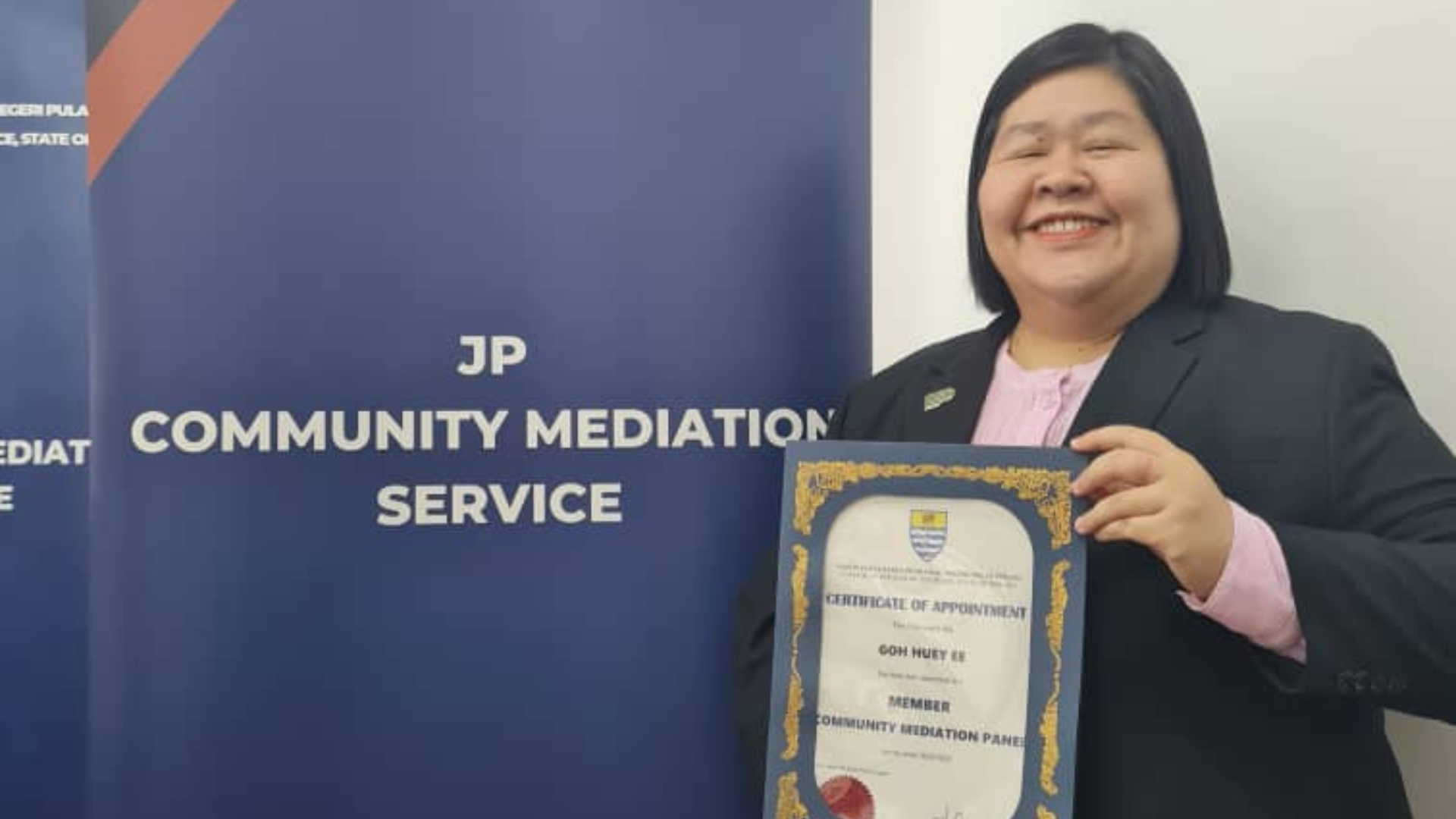Starting Point
The Majlis Jaksa-Jaksa Pendamai (MJJP), or the Council of Justices of the Peace, is an organisation in Malaysia comprised of individuals appointed as Justices of the Peace (JPs). A Justice of the Peace (J.P.) is a judicial officer of a lower court, selected or appointed through a commission (letters patent) to uphold and maintain peace. These individuals are recognized for their contributions to society and play a significant role in fostering social harmony, justice, and conflict resolution. The appointments are made by the state governments and are largely honorary, although JPs are entrusted with specific roles and responsibilities. The council serves as a platform for coordinating and amplifying the contributions of JPs at both state and national levels. Mediators under MJJP assist in resolving disputes at the community level, often addressing interpersonal and family conflicts. They work towards peaceful settlements to prevent escalation into legal cases. Their role is especially vital in addressing domestic conflicts, neighbourhood disputes, and land disagreements among others, providing a practical alternative to formal legal proceedings.
Now, it has at least 10 members who come from different background and expertise. Each member of MJJP is tasked with resolving issues based on their specific area of expertise. This is to ensure that Justices of the Peace (J.P.) have a comprehensive understanding of the conflict, enabling a more efficient resolution process. However, the current structure of the MJJP includes only two female mediators.
Peace Journey
Mediators under the Malaysian Judiciary's Judicial and Legal Profession (MJJP) play a pivotal role in facilitating communication between communities and government agencies. This function is particularly significant in Penang, where multi-ethnic communities, marked by cultural and linguistic diversity, often experience misunderstandings and conflicts. Mediators within the MJJP framework benefit from a clear, standardized legal structure for mediation, providing them with defined roles and responsibilities. Mediators are selected from the pool of Justice of the Peace (J.P.) officials and are required to attend paid monthly training courses to refine their mediation skills. These courses, which include nine days of online instruction and three days of in-person classes, are supplemented with practical case assignments to enhance their conflict resolution abilities. The President of MJJP reviews and assesses their skills to ensure quality. Training sessions are also conducted in Mandarin to cater to the ethnic Chinese community's needs.
Currently, J.P.s are tasked with mediating conflict cases in court, where their primary function is not to provide solutions directly, but to facilitate dialogue between conflicting parties, enabling them to reach mutually agreeable resolutions.
An interesting observation made by the participant is the variation in mediation styles between male and female mediators. Male mediators tend to approach conflict resolution with a straightforward, non-judgmental attitude, remaining less emotionally involved. In contrast, female mediators, noted for their high emotional intelligence (EQ), are able to empathise deeply with the parties involved. While this emotional connection can sometimes lead to perceptions of bias, it enables female mediators to grasp the subtleties of conflicts and develop more tailored, thoughtful solutions. However, the most crucial qualities for a mediator are assertiveness and extensive knowledge of the conflict at hand, which is why many mediators among J.P.s are older, typically in their 60s or 70s, due to their wealth of experience.
Another key concern raised by the participant is the lack of formal recognition for female mediators within communities. Despite many women actively engaging in dispute resolution and conflict mediation, there is no official body or certification process to formally acknowledge their role and expertise. This gap undermines their authority and credibility, limiting their ability to contribute effectively and systematically to community mediation efforts. Furthermore, certain conflicts, particularly those related to family matters, are regarded as private, and many individuals are reluctant to make them public, hindering mediation processes.
In response to these challenges, the J.P. has been working with the Majlis Bandaraya Pulau Pinang to establish a mediation centre in Penang. However, a competing initiative is set to launch in December 2024, with the Majlis Tindakan Pengguna Malaysia (Penang branch) unveiling its own mediation centre.
Success Stories
Participants noted that J.P.s have successfully mediated and resolved most assigned conflicts without escalating them to court. In many cases, mediators are specifically chosen from outside the neighbourhood or community of the parties involved. This approach ensures impartiality and prevents bias, allowing mediators to provide fair and balanced guidance during the resolution process.
Communication is the key to solve any conflict as most of the conflict arise because lack of communication. Family-related conflicts, such as disputes over divorce, inheritance, and shared assets, along with neighbourhood issues, are among the most common types of conflicts within communities. These disputes, however, can often be effectively resolved through open communication and mediation.
In certain constituencies, such as Sri Delima, the nature and frequency of conflicts differ. For instance, minor neighbourhood issues like parking disputes or concerns over fallen leaves encroaching into neighbouring properties are relatively rare. This is largely because most residents in these areas are well-educated, which contributes to a higher level of understanding and cooperation among neighbours. While such disputes do occasionally arise, they are typically few and manageable through proper dialogue and mutual understanding.
The Council of Justices of the Peace (MJJP) provides a structured framework for conflict mediation, ensuring that disputes are addressed systematically rather than through informal or hearsay methods. This structured approach promotes fairness, transparency, and a higher likelihood of resolving conflicts effectively.
However, it is equally important to emphasize the need for a greater presence of female mediators within this framework. Female mediators bring unique perspectives and emotional intelligence that can enhance the mediation process, especially in cases involving family disputes, domestic issues, or gender-sensitive matters. Increasing the number of female mediators not only ensures a balanced representation but also strengthens the overall effectiveness and inclusivity of the mediation process.

